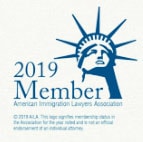Immigration law firms are familiar with the Affidavit of Support Form I-864, which is widely used by the United States Citizenship and Immigration Services (USCIS). In recent years, however, family and civil attorneys who may not be aware of this form have seen an influx of immigrants who wish to enforce the I-864 provisions.
San Diego immigration lawyers are certainly familiar with Form I-864. This is a document signed by someone who agrees in good faith to provide financial or economic support to immigrants who intend to become legal residents of the U.S. The sponsor must be either a citizen or legal resident who makes an admission insofar as being able to provide financial support in excess of 125 percent of the federal poverty guidelines, which vary in accordance to the intended state of residence and the number of immigrants being sponsored.
To get an idea of the potential financial commitment made by I-864 sponsors, let’s consider a woman and her child who travel from their country of origin to Kansas in 2014. By signing the I-864, a citizen who plans to marry the woman and become a stepfather to the child would essentially commit to providing them with about $20,000 per year at a minimum so that they do not become a public charge in case the woman cannot work for any reason. Learn more about spousal visas in San Diego.
Form I-864 is generally not expected to become an issue in family-based immigration cases; after all, families are supposed to work together to avoid poverty and not have to apply for welfare. The I-864 commitment to provide economic support remains in effect until the immigrant becomes a citizen of the U.S., gets married to someone else, is deported, leaves the country and does not return, or dies. Getting separated or divorce does not eliminate this commitment, which has prompted a few federal and state courts to view the I-864 as a contract and a social obligation that can be subject to enforcement.
Since various lawsuits have been filed on this matter, San Diego family law firms that specialize in divorce cases are learning to look out for I-864 filings when their clients are either immigrants or sponsors. Divorce attorneys are also consulting with colleagues who practice immigration law to become more familiar with rights and responsibilities of immigrants and sponsors.




